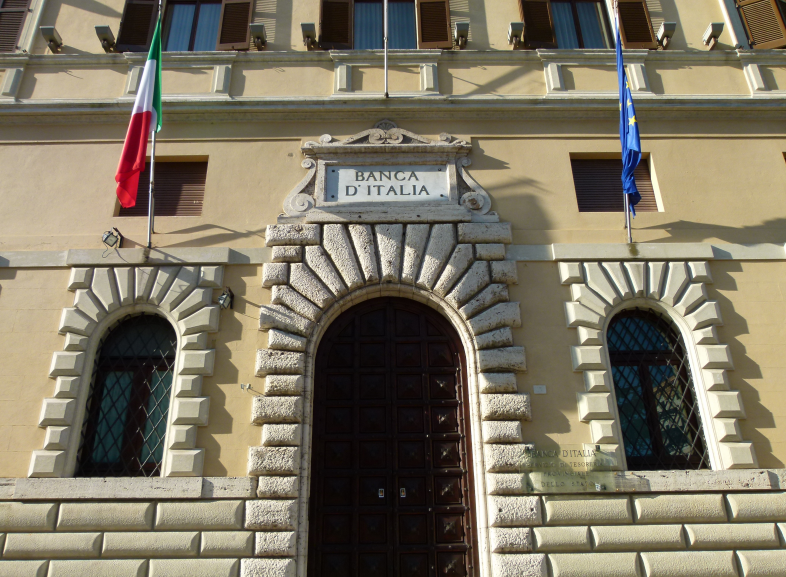In recent years, local investors, who hold bank bonds worth about 200 billion euros, greatly reduced their purchases of the securities. This is partly explained by a change in the rules, according to which the risk of debt relief on such debt instruments sharply increases in the event of a bank's difficulties.
- Customers will not only stop buying bank bonds - they will be trying to sell the bonds they already have in their portfolios, - shared his opinion with Bloomberg Mauro Novelli, a secretary at Adusbef - a group that has been actively speaking out against the introduction of such changes.
Experts believe that now fundraising will cause much more difficulties to banks.
Names such as Banca delle Marche SpA, Cassa di Risparmio di Ferrara SpA and Banca Popolare dell'Etruria e del Lazio have already been spotted among the troubled Italian banks. They have introduced a temporary administration.
Italian lenders are most dependent on private investment of all others.
Back in May of this year, Bank of Italy said that there is quite a strong reduction in bonds placements in the banking sector. In addition, the regulator asked banks to clarify to investors the risks associated with the purchase of debt securities.
Greece
The situation in Greece is different from other countries. The banking system there is virtually destroyed, and the introduction of new rules may have extremely negative consequences on the country's banking sector.
That is why the European authorities are now trying to restructure quickly to make progress before the new year. It is estimated that the Bank of Greece needs about $ 25 billion on the restoration.
Director of international consulting at McKinsey & Company Sven Smith writes:
- Given the sluggishness of European officials, it is likely that very soon we see a new variation on the theme of the European banking crisis and the crisis in Greece. In general, it is the time for Europe to go into a large-scale program of economic reform, which would combine reforms to stimulate growth on the supply side and demand-side efforts to support investment and job creation.
Low oil prices, more competitive euro exchange rate and judicious use of the monetary stabilization policy by the European Central Bank (not to mention overcoming the threat of Grexit) create more favorable conditions for such ambitious reforms.
The case story
New rules to help banks are in force in the EU since January 1: any aid programme should obligatory be attended not only by European authorities, but by banks creditors, too. First, the bank's shareholders and bondholders are to be involved in the aid program - their funds have to cover 8% of the bank's liabilities. If this is not enough, deposits that exceed 100 thousand euro can be used as well.
source: bloomberg.com
- Customers will not only stop buying bank bonds - they will be trying to sell the bonds they already have in their portfolios, - shared his opinion with Bloomberg Mauro Novelli, a secretary at Adusbef - a group that has been actively speaking out against the introduction of such changes.
Experts believe that now fundraising will cause much more difficulties to banks.
Names such as Banca delle Marche SpA, Cassa di Risparmio di Ferrara SpA and Banca Popolare dell'Etruria e del Lazio have already been spotted among the troubled Italian banks. They have introduced a temporary administration.
Italian lenders are most dependent on private investment of all others.
Back in May of this year, Bank of Italy said that there is quite a strong reduction in bonds placements in the banking sector. In addition, the regulator asked banks to clarify to investors the risks associated with the purchase of debt securities.
Greece
The situation in Greece is different from other countries. The banking system there is virtually destroyed, and the introduction of new rules may have extremely negative consequences on the country's banking sector.
That is why the European authorities are now trying to restructure quickly to make progress before the new year. It is estimated that the Bank of Greece needs about $ 25 billion on the restoration.
Director of international consulting at McKinsey & Company Sven Smith writes:
- Given the sluggishness of European officials, it is likely that very soon we see a new variation on the theme of the European banking crisis and the crisis in Greece. In general, it is the time for Europe to go into a large-scale program of economic reform, which would combine reforms to stimulate growth on the supply side and demand-side efforts to support investment and job creation.
Low oil prices, more competitive euro exchange rate and judicious use of the monetary stabilization policy by the European Central Bank (not to mention overcoming the threat of Grexit) create more favorable conditions for such ambitious reforms.
The case story
New rules to help banks are in force in the EU since January 1: any aid programme should obligatory be attended not only by European authorities, but by banks creditors, too. First, the bank's shareholders and bondholders are to be involved in the aid program - their funds have to cover 8% of the bank's liabilities. If this is not enough, deposits that exceed 100 thousand euro can be used as well.
source: bloomberg.com



















